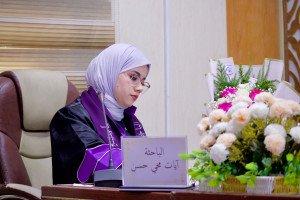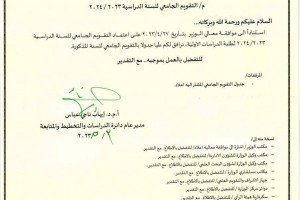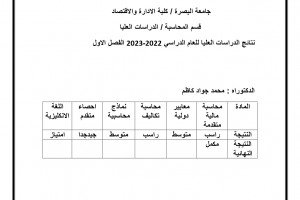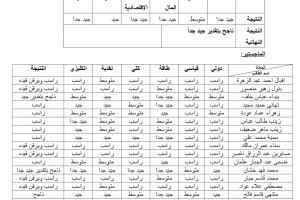

A MASTER THESIS AT BASRA UNIVERSITY DISCUSSING THE RELATIONSHIP BETWEEN THE ECONOMIC ESSENCE AND THE LEGAL FORM OF ACCOUNTING PRACTICE AND ITS IMPACT ON THE COMPANY’S FINANCIAL PERFORMANCE UNDER THE FINANCIAL REPORTING STANDARD:
A master's thesis in the Accounting Department discussed the relationship between the economic essence and the legal form of the accounting practice and its impact on the company's financial performance under the Financial Reporting Standard (lFRS 16).
The thesis presented by the researcher (Ali Yusef Jubeir) included four chapters, in which the first chapter dealt with clarifying the research problem, its goal and its importance, as well as the hypotheses, methodology, and method of the research. And second chapter included a farmwork of concepts economic essence on the legal form practices and the third chapter show an applied aspect of certain economic units for the study represented by the General Company for Iraqi Airways, and the fourth and final chapter came with the most important findings and recommendations.
The message aimed to explain the conceptual approach to the economic essence and the legal form of accounting practices, to demonstrate the importance of financial leasing as one of the important sources of financing and its necessity for economic units, as well as to know whether the application of Financial Reporting Standard No. 16 will contribute to improving financial performance in light of the concept of the economic essence and the legal form of accounting practice.
The message concluded that the economic substance refers to the economic and financial impacts resulting from the process and events, meaning that the economic essence is the recognition of assets, liabilities and property rights depending on the essence and nature of the process.
The thesis recommended that the economic units should study the requirements for the application of the concept of economic substance in legal form, Financial Reporting Standard No. 16, which consists of accounting, strategic and operational requirements.




.jpeg)

